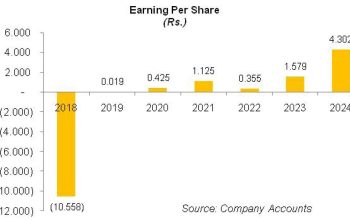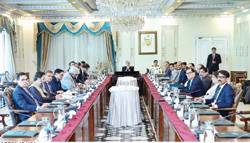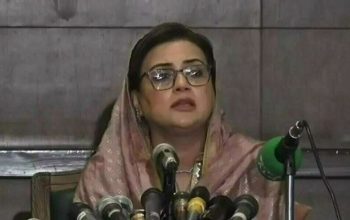As the specter of default hangs over the country amid persistent economic uncertainty, the National Security Committee (NSC), the country’s highest forum on security and foreign policy, agreed on Monday that national security hinges on economic sovereignty.
“The forum underscored that comprehensive ‘national security’ revolves around economic security and that sovereignty or dignity comes under stress without self-sufficiency and economic independence,” reads a statement issued by the Prime Minister’s Office after the 40th meeting of NSC.
Prime Minister Shehbaz Sharif presided over the crucial huddle where attendees included relevant federal cabinet members, chairman Joint Chiefs of Staff Committee, all services chiefs, and heads of intelligence services. Significantly, it was the second meeting of NSC in less than a week.
The NSC, which convened amid a spurt in terrorist violence, was expected to primarily cobble up a new strategy or tweak the existing one to deal with the new security challenge. However, the fact that the forum discussed the country’s economic situation, which it normally does not do, shows that the growing economic fragility, triggered by political volatility, has started weighing down on the powers that be.
Official sources said the economic situation has reached a point where it is directly impacting the country’s national security and hence the NSC took it up for discussions.
Also read: NSC meets again amid enormous challenges
The session undertook a comprehensive view of the ongoing economic situation vis-à-vis challenges being faced by the common man in Pakistan, particularly the lower and middle-income classes, according to the statement.
Finance Minister Ishaq Dar briefed the participants on the government’s roadmap for economic stability, including the status of discussions with international financial institutions, exploring other financial avenues based on mutual interests as well as relief measures for the common man.
The delay in the 9th review of the International Monitory Fund’s $7 billion Extended Fund Facility program for Pakistan has exasperated economic concerns by magnifying the default fears. The global lender would release the next $1.18billion tranche after the completion of ninth review.
Although the government claims to have made arrangements for the $32 billion gross external loans for this fiscal year but these plans are not workable without the IMF umbrella.
Given the stalemate with the IMF, the PDM government wanted all stakeholders on board to take tough decisions, according to sources. Without support from all relevant quarters, it would be difficult for the beleaguered government to take difficult decisions.
The NSC agreed on undertaking concrete steps to strengthen the economy, including imports rationalization as well as preventing illegal currency outflows and Hawala business. Special emphasis will be made to improve agricultural output and manufacturing sector to ensure food security, imports substitution and employment.
The meeting resolved that people-centric economic policies with trickledown effects to the common man will remain a priority. It was also agreed to involve all stakeholders for consensus to realise effective and fast-track economic recovery and roadmap, according to the statement.
The forum resolved to mobilise all resources for the rehabilitation of 33 million flood affectees and reconstruction of affected infrastructure in coordination with the provincial governments and multilateral financial institutions. The forum also appreciated the ongoing relief efforts led by the prime minister and the federating units.
The NSC also sent an unequivocal message to the Afghan Taliban regime that Pakistan would not allow its neighbour to provide sanctuaries and facilitate terrorists. “The forum concluded that no country will be allowed to provide sanctuaries and facilitation to terrorists and Pakistan reserves all rights in that respect to safeguard her people,” says the statement without naming Afghanistan.
Though not explicitly said, the statement indicated that Pakistan might resort to targeting the terrorist safe havens across the border if Afghanistan did not take the appropriate action. Interior Minister Rana Sanaullah has said international laws sanctions cross-border attack on terrorists’ sanctuaries.
Also read: Economy in trouble but won’t default, NSC told
However, the Afghan Taliban regime rejected Pakistan’s allegations that the TTP was operating out of Afghanistan and warned against any cross-border raids. The NSC statement, nevertheless, suggests that Pakistan is not convinced with the Afghan Taliban government’s stance.
The committee was also apprised of the country’s security situation with a particular focus on the recent terrorist incidents in Khyber-Pakhtunkhwa and Balochistan.
The prime minister emphasised that the war against terrorism would be led by federal and provincial governments as per National Action Plan in accordance with the National Internal Security Policy with people-centric socio-economic development as a priority while the Armed Forces will provide resolute deterrence and secure conducive and enabling environment.
“The Provincial Apex Committees are being revived in full earnest and LEAs, especially CTDs, will be brought up to the required fighting standards with requisite capabilities,” reads the statement.
The NSC reiterated its resolve to have zero-tolerance for terrorism in Pakistan and reaffirmed its determination to take on any and all entities that resort to violence. “This will be dealt with full force of the state. Pakistan’s security is uncompromisable and the full writ of the state will be maintained on every inch of the Pakistan’s territory,” it added.
Read the full story at the express tribune website.


